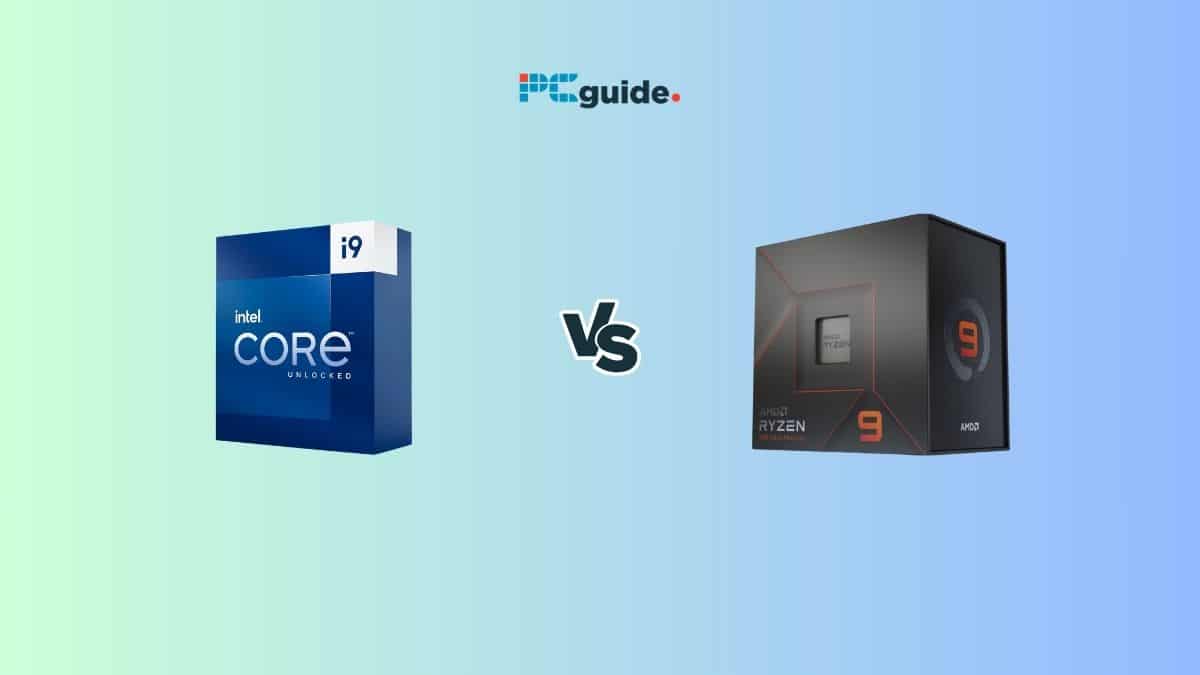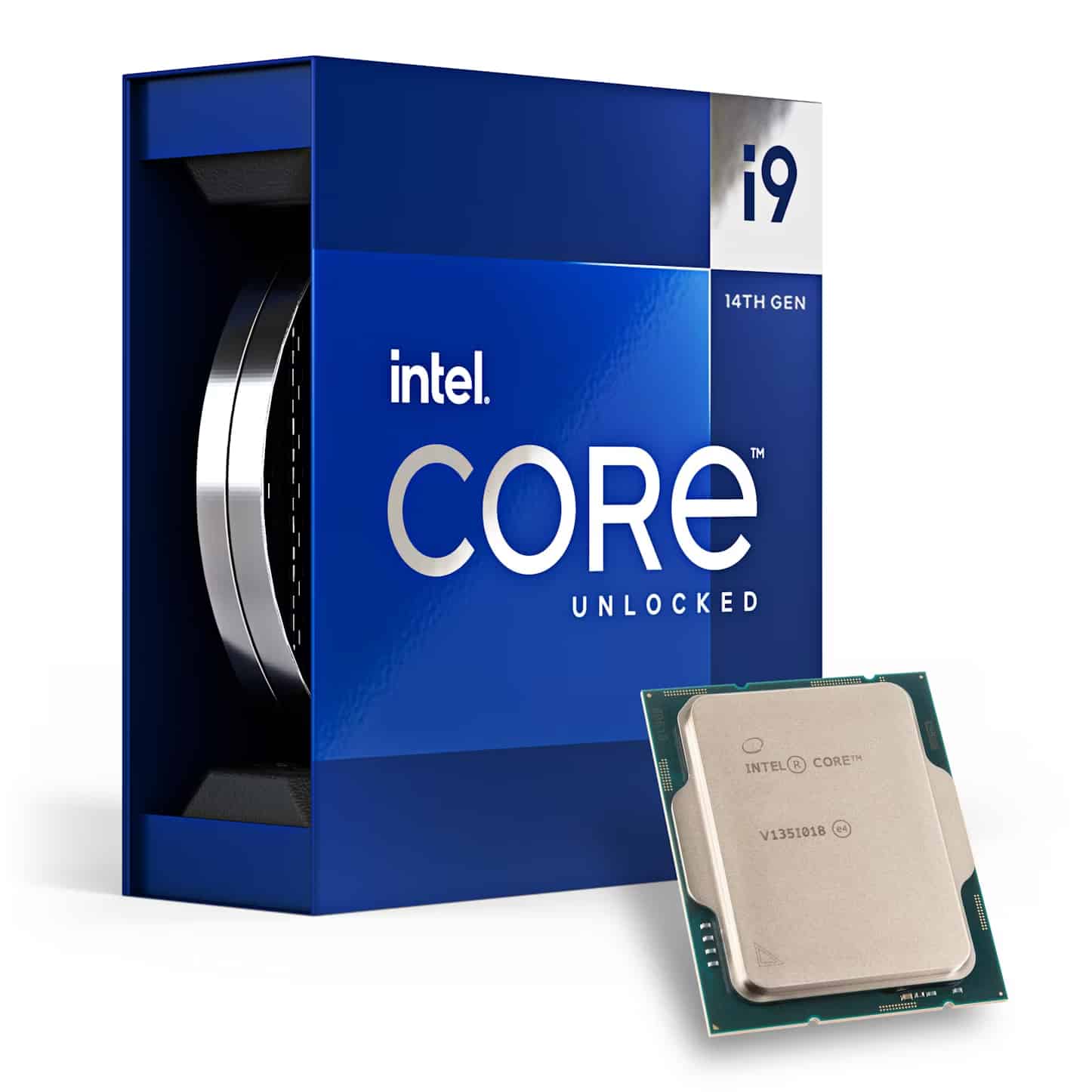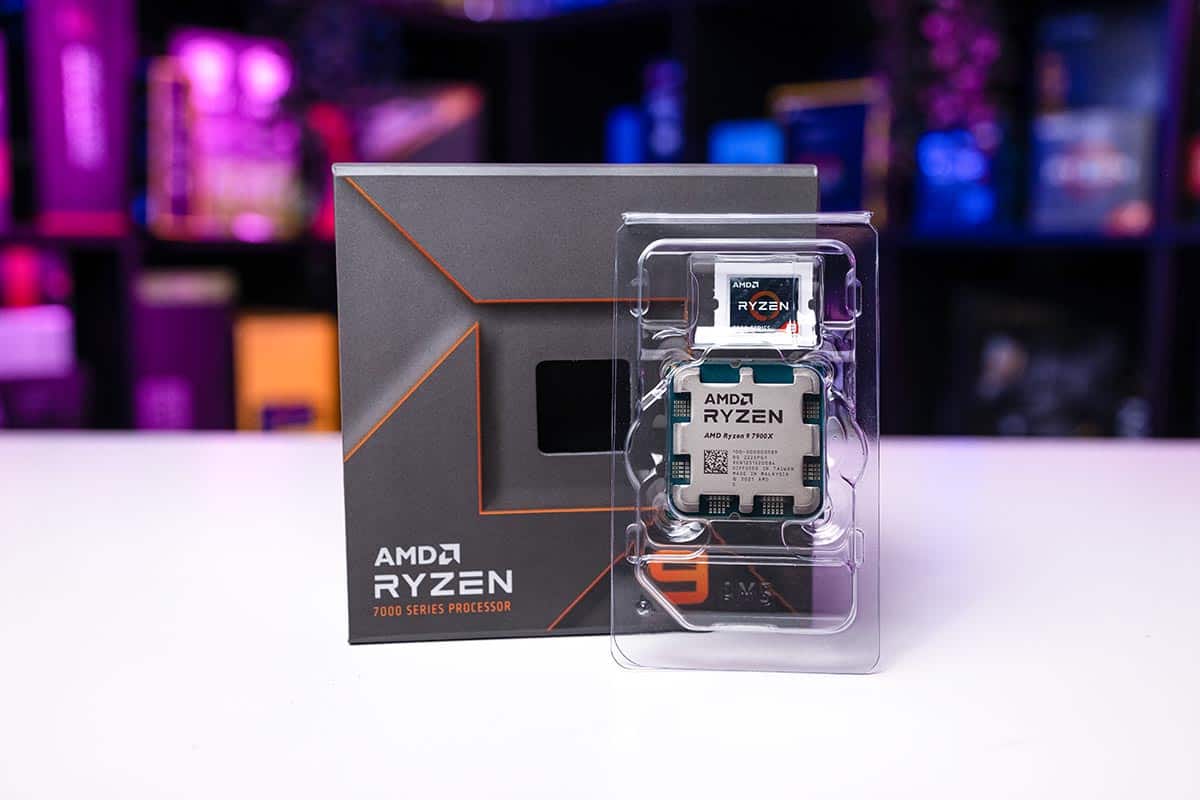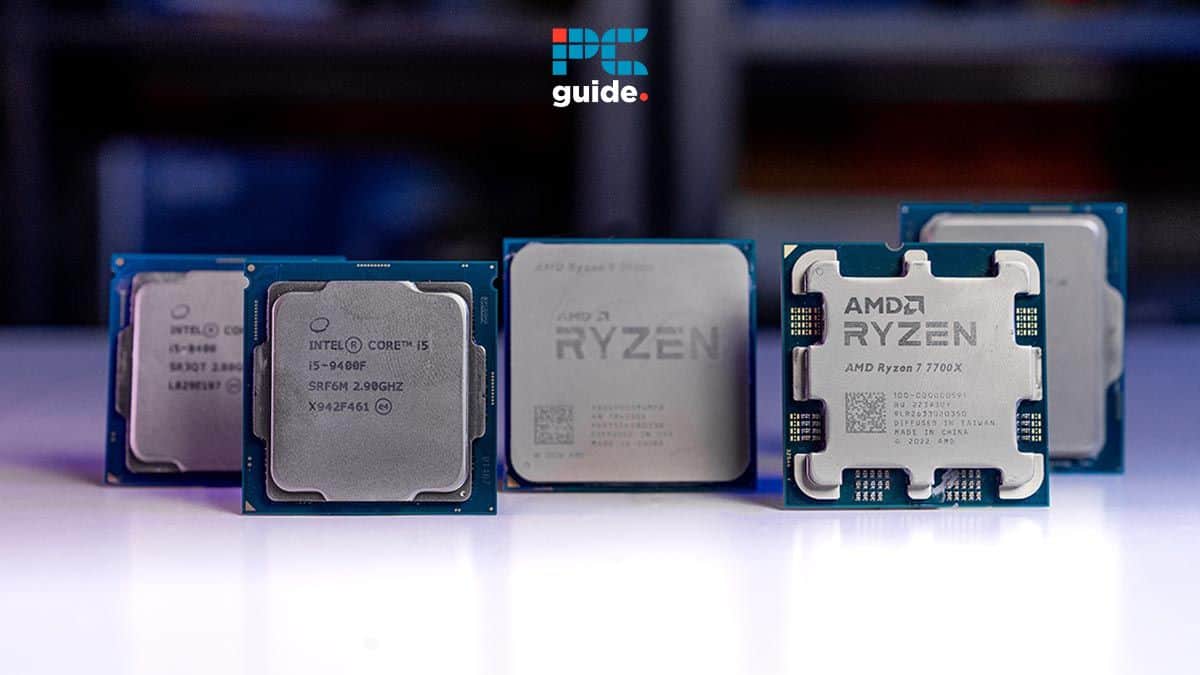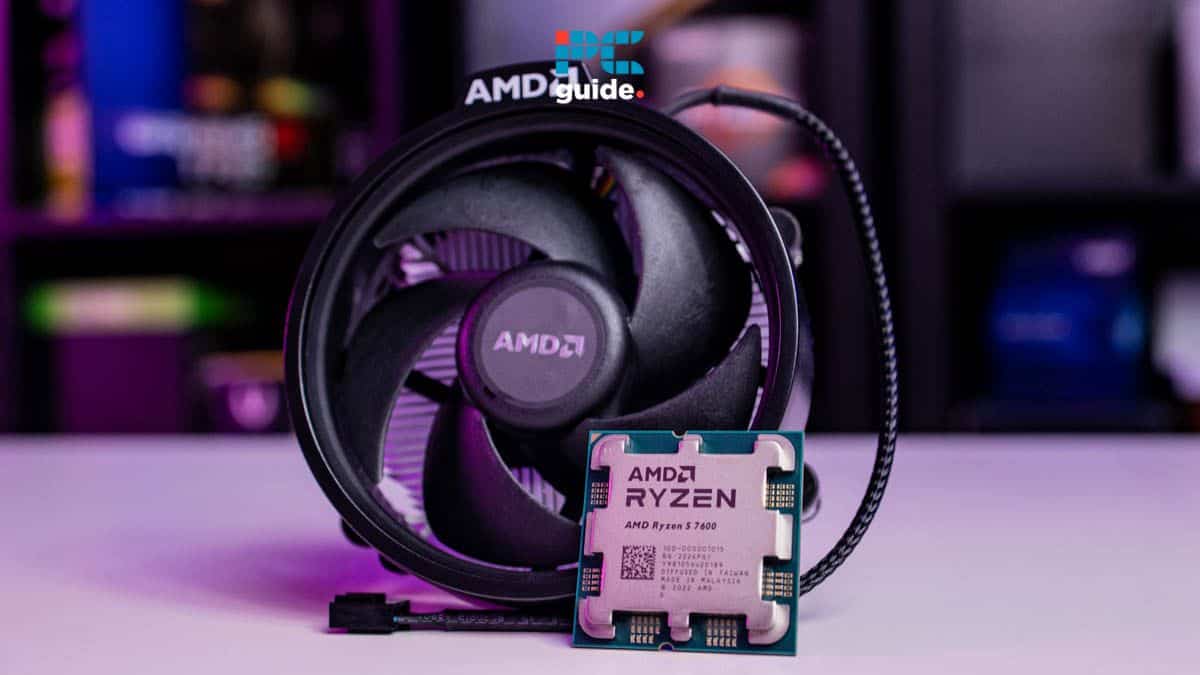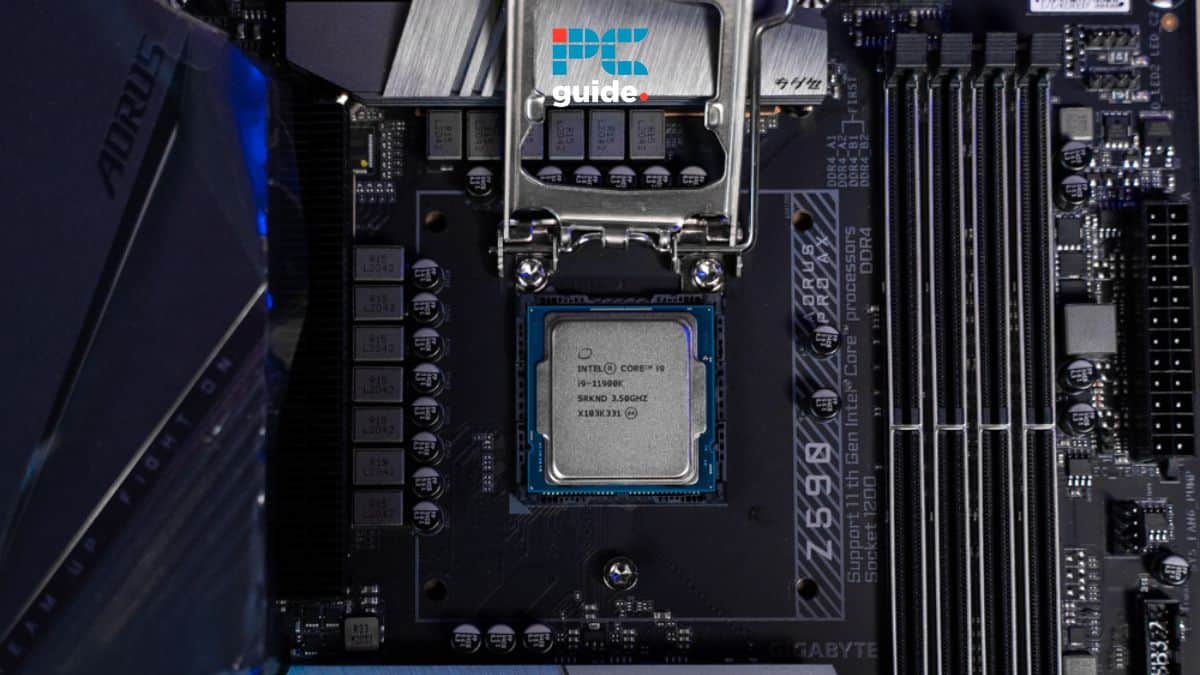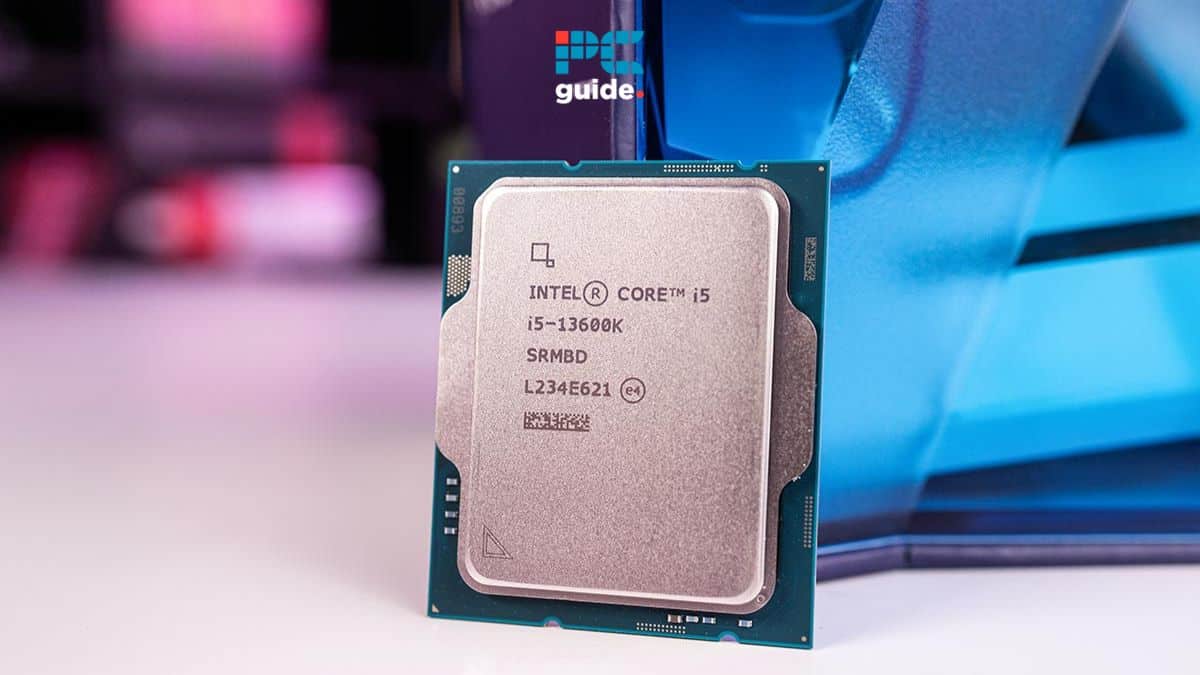Today, we will compare the Core i9 14900KS vs. Ryzen 9 7900X. With each new generation of processors, enthusiasts eagerly anticipate the performance gains and innovations that promise to push the boundaries of computing power. Among the latest contenders in this ongoing saga is the Intel Core i9 14900KS. We will see the performance gain it can have over AMD’s Ryzen 9 7900X.
Core i9 14900KS vs. Ryzen 9 7900X: Specs comparison
- Fabrication Process: Efficiency Matters The Ryzen 9 7900X’s smaller 5nm process node suggests potential advantages in power efficiency and transistor density. Intel’s 10nm process, used for the i9-14900KS, has had mixed real-world results. We’ll need benchmarks to see how this translates to performance per watt.
- Cores and Threads: The i9’s Advantage: The i9-14900KS will have 24 cores (8 Performance, 16 Efficiency) compared to the Ryzen 9 7900X’s 12 cores. This gives the Intel CPU a significant lead in multi-core tasks like video editing, 3D work, and scientific computing.
- Clock Speeds: A Complex Picture: The Ryzen 9 7900X has a higher base clock (4.7 GHz vs. 3.2 GHz for the i9). However, the i9-14900KS’s 6.2 GHz boost clock is significantly higher for top-end single-core performance, impacting snappiness and gaming frame rates (if your graphics card is up to the task).
- Cache Matters: The Ryzen 9 7900X has a larger L1 cache per core, which could improve performance in latency-sensitive tasks. The i9-14900KS likely has larger L2 and L3 caches that could speed up data access across all its cores.
- Other Considerations
- Memory Support: Both CPUs support modern DDR5 RAM, but motherboard compatibility and price play a role.
- PCIe Lanes: The i9-14900KS, being part of Intel’s Raptor Lake Refresh architecture, could have better support for the latest storage and expansion devices.
Specs table
| Specification | Core i9-14900KS | Ryzen 9 7900X | Notes |
|---|---|---|---|
| Performance Cores (P-Cores) | 8 | 12 | Ryzen 9 7900X likely has faster cores overall |
| Efficiency Cores (E-Cores) | 16 | 0 | i9-14900KS wins for multi-tasking |
| Base Clock Speed | 3.2 GHz | 4.7 GHz | Ryzen 9 7900X has the advantage here |
| Max Turbo Frequency | 6.2 GHz | 5.6 GHz | i9-14900KS likely offers better single-core boost |
| Process Node | 10nm | 5nm | Ryzen 9 7900X may be more energy-efficient |
Core i9 14900KS vs. Ryzen 9 7900X: Performance
Predicting the performance gap between these CPUs before official benchmarks is tricky, but we can analyze their key differences:
- Core Wars: The i9-14900KS’s 24 cores (8 Performance, 16 Efficiency) give it a major advantage in heavily multi-core tasks like video rendering, scientific computations, etc. The Ryzen 9 7900X, with 12 cores, will likely fall behind here.
- Clock Speed Battleground: The Ryzen 9 7900X has a higher base clock speed, potentially giving it an edge in some single-core applications. However, the i9-14900KS’s higher turbo boost could mean snappier performance in tasks like gaming (as long as your graphics card is potent enough).
- Cache Matters: Both CPUs have substantial caches, but a larger cache can improve data retrieval and system responsiveness. We need further details on the i9-14900KS’s final specs for a clearer comparison here.
- The GPU Factor: The i9-14900KS likely has integrated graphics, which are weak but helpful for troubleshooting. The Ryzen 9 7900X lacks integrated graphics, meaning you’ll absolutely need a dedicated graphics card.
- Efficiency vs. Raw Power: The Ryzen 9 7900X has a lower TDP, hinting at better energy efficiency. The i9-14900KS might offer higher peak performance but likely uses more power.
Single-core performance: Gaming and productivity
For single-core tasks, which include most gaming scenarios and certain productivity applications, higher clock speeds are crucial. Here, the Core i9 14900KS might have the upper hand with its higher boost frequency, offering superior performance in single-threaded applications and ensuring smoother gaming experiences, especially when paired with high-end graphics cards.
Conversely, the Ryzen 9 7900X boasts higher base and boost frequencies that could make it highly competitive in single-core tasks. Its performance in gaming and single-threaded applications will be closely watched, as these scenarios are often sensitive to even slight variations in CPU speed.
Performance table
| Feature | Core i9 14900KS | Ryzen 9 7900X |
|---|---|---|
| Architecture | Innovative Core Architecture | – |
| CPU Speed (Boost Frequency) | Higher Boost Frequency | High Base and Boost Frequencies |
| Integrated Graphics | Yes | Yes |
| Multi-Core Performance | Superior Efficiency and Scalability | High Computational Power |
| Single-Core Performance | Optimal for Gaming and Productivity | Competitive in Per-Core Performance |
This comparison highlights the nuanced differences in performance expectations between the Core i9 14900KS and Ryzen 9 7900X. Each CPU has areas where it excels, making the choice between them a matter of matching specific needs and preferences to the strengths of each processor.
Core i9 14900KS vs. Ryzen 9 7900X: Price and value
Price considerations will undoubtedly influence the purchasing decision between the Core i9 14900KS and the Ryzen 9 7900X. While official pricing for the Core i9 14900KS remains undisclosed, its speculated features and performance enhancements may command a premium over the Ryzen 9 7900X.
In terms of value, users must weigh the performance benefits against the cost difference between the two processors. The Ryzen 9 7900X, with its proven track record and competitive pricing, may offer a compelling option for users seeking a balance between performance and affordability.
| Factor | Core i9-14900KS | Ryzen 9 7900X | Notes |
|---|---|---|---|
| Launch Price | $689 | $549 | “KS” Intel chips are usually premium priced |
| Current Price | Unknown (Not yet released) | Can be found for under $500 | CPU prices often drop over time |
| Performance Gains | Significant in multi-core, decent in single-core | Excellent, but outpaced by i9-14900KS | Is the extra performance worth the higher cost of the Intel chip? |
| Target User | Enthusiasts needing maximum power | Gamers, content creators, most users who want great performance without breaking the bank | Depends on your workload intensity |
| Cores & Threads | 24 Cores / 32 Threads | 12 Cores / 24 Threads | i9-14900KS wins for multitasking |
| Memory Support | DDR5 | DDR5 | Both support modern RAM, but motherboard compatibility matters |
| Bandwidth & PCIe | Likely better support for latest devices | Excellent support | A slight edge to the i9-14900KS could matter for cutting-edge storage |
Final verdict
The Core i9 14900KS and the Ryzen 9 7900X both offer impressive performance, but they target different users. The Intel CPU will be a raw performance beast, ideal for those who need the absolute maximum power regardless of cost. Think heavy content creation, scientific workloads, and other tasks that benefit from a high core count.
The Ryzen 9 7900X strikes a balance between excellent performance, lower power usage, and a more competitive price. This makes it a compelling choice for gamers, enthusiasts, and users seeking better value without sacrificing too much power.
Here’s a quick breakdown to help you decide:
- Need Maximum Multi-Core Power? If so, the Core i9-14900KS might be worth the investment.
- Gaming and Everyday Power? The Ryzen 9 7900X likely offers a better price-to-performance ratio.
- Budget Conscious? The Ryzen 9 7900X will likely be more affordable.
- Future Proofing: The i9-14900KS, being a 14th gen Intel CPU, requires a newer motherboard socket than the Ryzen.

